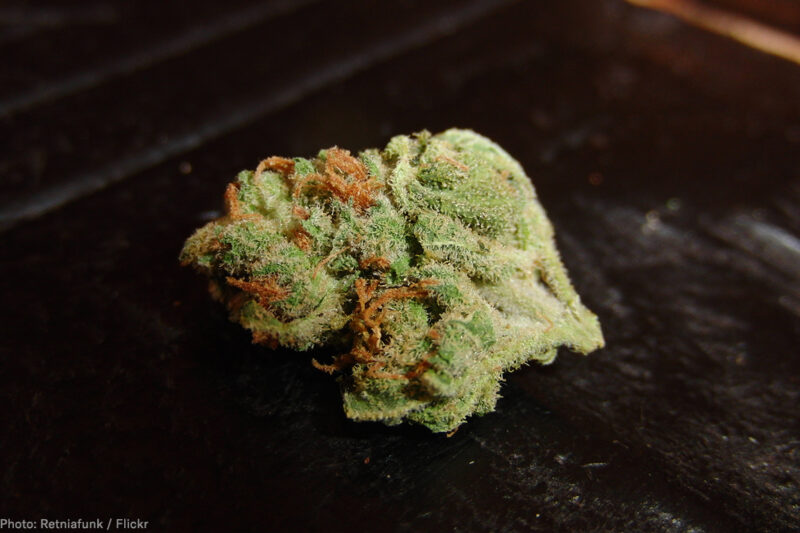
UPDATE 2 (11/13/2017): The ACLU of Pennsylvania has pulled its report, Cannabis Crackdown, and issued a correction, which can be read .
UPDATE (10/25/2017): It has come to the attention of the ACLU of Pennsylvania that the racial disparity in arrest rates for marijuana-related offenses in Pennsylvania may be inaccurate. The ACLU of Pennsylvania is recalculating the data provided in its report. An update will be posted here soon.
The war on marijuana continues to rage in Pennsylvania.
Despite slow progress in loosening the commonwealth’s laws on the devil’s lettuce — including a and municipal decriminalization ordinances in its largest , its , and that is home to its largest university — arrests for marijuana offenses are not abating. In fact, arrests are increasing. And the greatest impact is on people of color.
On Monday, the ACLU of Pennsylvania released that analyzes seven years of arrest data, from 2010 to 2016, which was compiled from the Uniform Crime Reporting System. That analysis found that arrests of adults for marijuana possession increased by 33 percent in the 66 counties outside of Philadelphia. (We calculated that number without Philadelphia because its decriminalization ordinance went into effect in October 2014, which led to a dramatic drop in criminal arrests for possession and made Philadelphia an outlier in our data set.) Over those seven years, arrests for possession increased in 50 of Pennsylvania’s 67 counties.
And the racial disparity in the arrest rates of white people and Black people is not subsiding. In fact, it’s getting worse. The racial disparity increased every year in that time period. By 2016, a Black adult was eight times more likely to be arrested for marijuana possession than a white adult, despite survey data that consistently shows that usage rates are effectively the same among people of all races.
In all, there were about 178,000 arrests for marijuana-related offenses in Pennsylvania during those seven years, and nearly 80 percent of them were for possession. Using for the costs per arrest from 2015, we concluded that taxpayers spent more than $225 million on those arrests.
It is time to end prohibition and legalize marijuana in Pennsylvania.
There are incremental steps that we could pursue to diminish arrests and racial disparities — more municipal decriminalization ordinances, anti-bias training for law enforcement, and the like. But after absorbing these statistics, we realized that incremental progress is not enough. Only the legalization of marijuana for recreational use, as have already done, will end the devastating impact that marijuana arrests have on people’s lives.
Take David, a respected African-American healthcare worker who grew marijuana at home for his ailing wife, who suffered from chronic pain and depression. David (which is a pseudonym we’ve used to diminish further stigma from his arrest) was already an avid gardener, and the cannabis that he grew was intended solely to ease his wife’s suffering.
When she passed, he began dismantling his garden, slowly and piece by piece. Somehow, it was discovered, and David soon found himself on the receiving end of criminal charges, including a felony charge of possession with intent to deliver. David had no intention to sell to anyone. The cannabis he grew was a labor of love for his dying wife. To avoid the risk of a longer sentence, David pled guilty to the felony charge, with additional charges dropped, and spent six months in jail. He also lost his medical licenses and was forced to file for bankruptcy.
A marijuana arrest can put severe limitations on a person’s ability to carry out their daily life, including barriers to employment, education, and housing. And for what? A plant that is no more dangerous — and — than alcohol?
Pennsylvanians increasingly recognize this. A poll released last month by Franklin and Marshall College found of those surveyed support legalization of marijuana, with just 31 percent opposed. The same poll showed 51 percent support last spring and 40 percent support last year. Support for legalization is growing every month.
When police target recreational marijuana consumers, they destroy lives. It is useless, pointless, and unnecessarily punitive. It is time to end prohibition and legalize marijuana in Pennsylvania.


